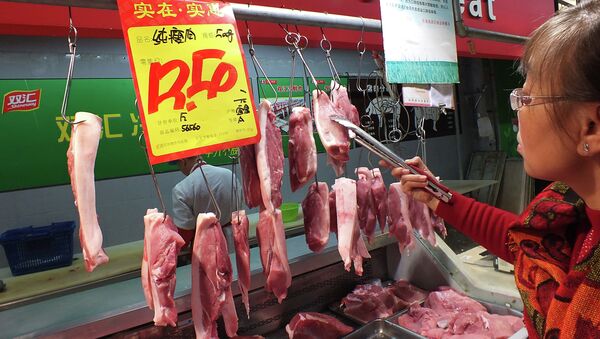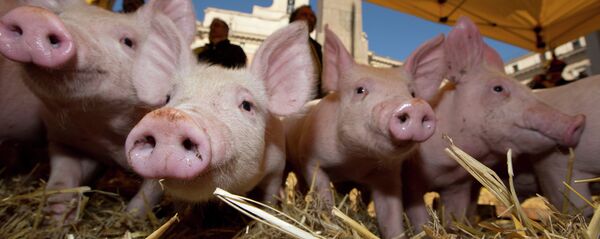The drug, called Ractopamine, promotes quick weight gain in animals which are raised for their meat, and according to the agricultural regulators of most countries throughout the world, poses a threat to human health as well.
Imports of American pork to China have decreased by 41 percent year over year in the first six months of 2015, the worst results since 2010. Foreign sales of US pork have fallen in the US for four years in a row, according to official statistics. At the same time, US pork production has beaten a national record this year, topping 24.6 billion pounds.
Moreover, Chinese buyers purchase not only pure meat, but also ears and organs of hogs, parts that traditionally have little demand in other countries. Eventually, it raises the cost of each US-raised animal by $10 dollars, Bloomberg added. However the ban of Ractopamine has made most American hogs undesirable in China.
In an attempt to meet agricultural standards that have been adopted by China and throughout the globe, American farmers are rushing to switch to Ractopamine-free meat production. However, even if they manage to do so in a short period of time, they could easily lose out to European farmers, Bloomberg noted.
Meanwhile, Chinese domestic production isn’t enough to slake the Celestial Kingdom’s demand for pork: USDA predicts that imports will total 800,000 metric tons in 2015, breaking all records.
The sale of meat produced using Ractopamine is prohibited in 160 countries, including the nations of the EU as well as China and Russia.



